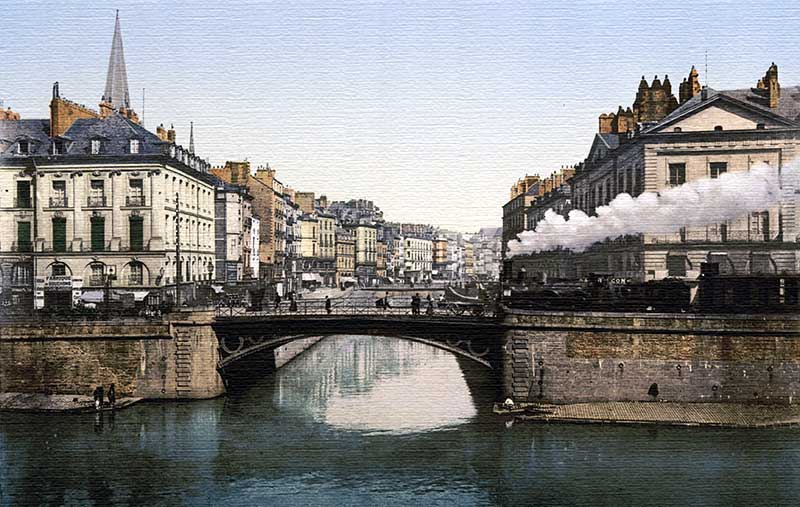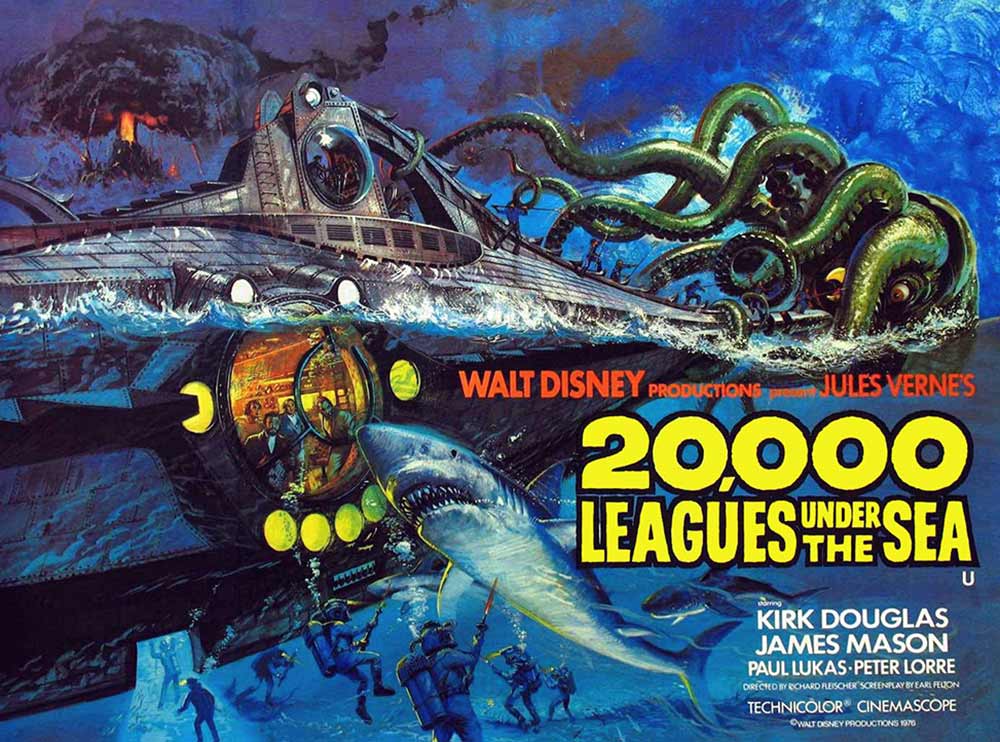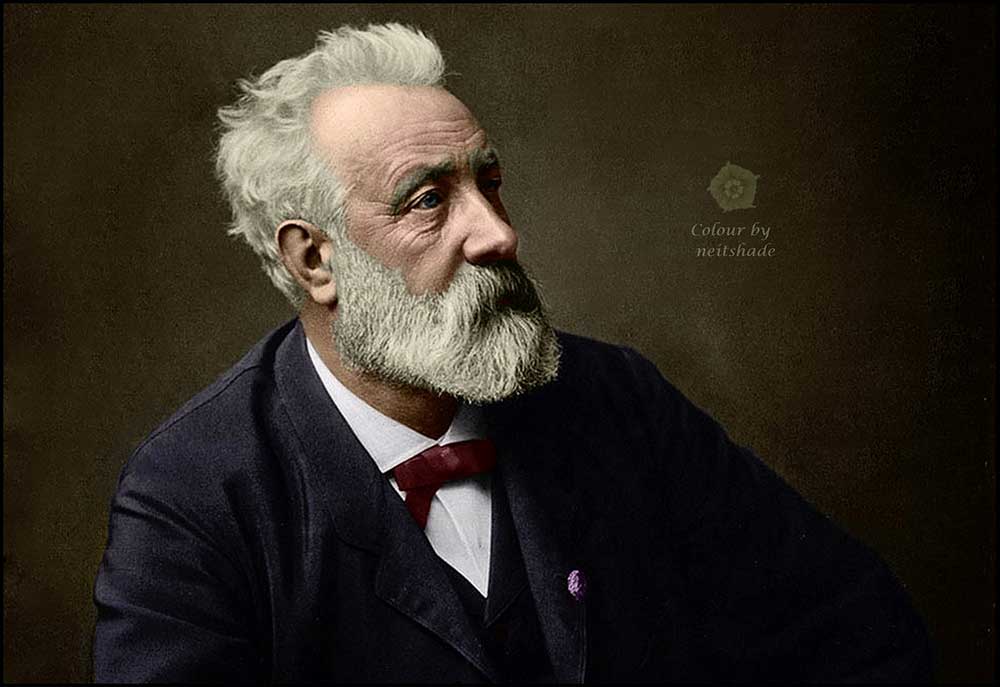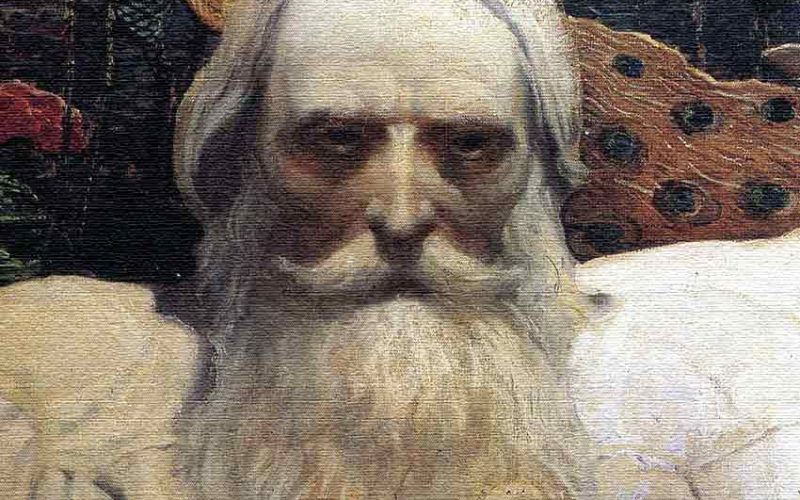“But the Earth is very large, and life is very short! In order to leave a completed work behind, one would need to live to be at least 100 years old!” ~Jules Verne
Do you consider 35 too young to be a “late” bloomer? I argue, at least for baby boomers and earlier generations, it’s not.
Until very recently, we became adults sooner. People often married, started a family, and embarked on life-long careers while still in their teens. With so much responsibility so young, embracing a creative passion after age 35 seemed infeasible (it still does), especially for those born to the working classes.
But family money guarantees little if you resist the status quo, as Jules Verne (1828-1905) discovered. When Verne decided to pursue the theater instead of a law career, his father disowned him.
Yet today we know Jules Verne, not as a playwright or attorney, but as the author of 20,000 Leagues Under The Sea, A Journey To The Centre Of The Earth, and Around The World In 80 Days.
How did he evolve from a rebellious law student and failed playwright to the “father of science fiction” starting at age 35?
Stocks and Operas
Jules-Gabriel Verne was born on a small island in the middle of the Loire River 189 years ago today. From the window of his family’s summer-house, he watched schooners and clipper ships arrive from exotic ports of call, which gave him a life-long yearning for adventure and faraway places.
One family legend recalls how when Jules was 11, he shipped off as a cabin boy on a clipper, only to have his father, Pierre, catch up to him before the ship reached the high seas. Pierre made young Jules promise to travel “only in his imagination.” He wanted Jules to follow in his footsteps and become an attorney.

Jules’s mother Sophie came from a long line of sailors and shipbuilders. Verne once said her imagination was “like a tornado” compared to his. At age 19, Jules left for Paris to study law. Sophie made sure her brother, a painter, took her son under his wing.
Verne’s uncle introduced him to Paris’s theaters and literary salons. The bohemian Latin Quarter completely seduced Verne. Verne met Alexandre Dumas fils (son of the famous Three Musketeers author), who encouraged him to write. Young Dumas even premiered Verne’s play at his father’s Lyric Theatre.
Verne graduated from law school at 22 and informed his father he had no intention of joining the family business. He explained to his mother, “I can become a good writer, but I would be a poor lawyer since in everything I see only the comic side and the artistic form, and do not sense the serious reality of things.” Pierre cut off his allowance.
Dumas convinced his father to hire Verne as the Lyric’s secretary. Dumas senior became both employer and mentor to Verne. For the next eight years, Verne wrote almost two dozen plays and operettas, but the theater only produced a few, which didn’t do well.
At 29, Verne journeyed to a wedding in the provincial town of Amiens, where he met Honorine de Viane, a young widow with two daughters. In complete contrast to Verne, she was a socialite fond of fashionable clothes and parties. They fell in love, as opposites do, and wanted to marry. But her family rejected Verne’s lifestyle since he could barely support himself.
Verne petitioned his father for 50,000 francs to buy into the Paris stock exchange, the Bourse. Pierre had finally accepted that his son would be a disappointment, but this new vocation gave him some hope. But Verne explained, “It is not a question of my giving up literature, for that remains my chosen career, but of pursuing a more lucrative profession at the same time. I want to create a presentable situation for myself.”
Pierre understood and gave him the money. Honorine and Verne wed and, in 1861, their only child, Michel, was born.
Verne rose at 5 am and wrote for five hours most days before going to the stock exchange. He’d begun to experiment with new literary forms and genres. But he hated his job and its preoccupation with money. He had nothing in common with his coworkers.
Honorine desired a conventional marriage and couldn’t relate to Verne’s passion for writing. Their relationship quickly went cold. Verne escaped into his stories and went on long sailing trips with his friends.
At age 35, Verne felt he’d failed in both love and art. He’d written an adventure story titled Five Weeks in a Balloon that he felt had promise, but several magazines had rejected it. Finally, his former employer Alexander Dumas introduced Verne to Pierre-Jules Hetzel, one of the most successful publishers of the time, who loved Verne’s concept and suggested some edits.
The novel sold well. Verne and Hetzel created an exciting new hybrid genre—adventure fiction fused with science and geography—and planned a series of “Voyages Extraordinaires.” From their 20-year collaboration came our most-beloved science fiction and adventure stories.
Verne followed Five Weeks in a Balloon (1863) with The Adventures of Captain Hatteras (1864), Journey to the Center of the Earth (1864), From the Earth to the Moon (1865), In Search of the Castaways (1865), and Twenty Thousand Leagues Under The Sea (1869). In 1870, Twenty Thousand Leagues finished its serial run Hetzel’s magazine. Verne could finally leave the stock exchange and live on his writing income. He was 42.

Verne indulged his childhood dream and acquired a small yacht that he named the St Michel. He hired a factotum named Antonie Delon, whom his American editor called “a veritable sea-wolf, who loves danger because he has always overcome it.” Together they explored the English coast as far as Scotland and visited the Channel Islands.
Verne divided his time between the St Michel and Amiens, where he and Honorie had moved to be near her family. He wrote most of Around the World in Eighty Days at sea. By the time it was published, Jules Verne was a household name.
Fame and Tragedy
But at the height of his success, Verne’s life took a tragic turn. His only son, Michel, who’d caused Verne constant heartache, eloped with an older actress then abandoned her and abducted an underage girl. Creditors constantly hounded Verne for Michel’s gambling debts.
Then Verne’s paranoid nephew Gaston attacked him and shot him in the leg. The Verne family concealed the incident from the press and committed Gaston. But the wound never healed. Verne limped for the rest of his life.
Pierre-Jules Hetzel passed away a week after the shooting. Verne lost both a publisher and a dear friend. Hetzel’s son took over, but he didn’t have his father’s passion for the venture.
A year after Hetzel passed away, Verne’s mother died. She’d been the only person supportive of his writing career in the early days. Verne was left crippled and rudderless. His storylines grew depressing. They predicted futuristic weapons of war, including the guided missile.
But at least Verne found happiness in his last decade. He and Honorine reconciled, and Verne took her on a grand tour of the Mediterranean. Michel, the prodigal son, settled down and became Verne’s assistant and collaborator. Verne regained his momentum for several years, but passed away from complications of diabetes at age 77, leaving several novels for Michel to finish.
Science and Fiction
Most people regard Verne as an astonishing visionary. Just how many of our modern marvels did he foresee?
National Geographic summarizes “8 Jules Verne Inventions That Came True.” They include:
- electric submarines
- newscasts
- solar sails
- lunar modules
- videoconferencing
- the concept of the Internet
But Rosalind Williams, historian of technology at the Massachusetts Institute of Technology, doesn’t find Verne’s prophecies so revolutionary:
“He predicted a lot of things that have happened, but that’s because he was reading a lot and talking with people and he knew what was going on in the world around him, so why should we be surprised?
“It wasn’t magic. He was just paying attention to things.”

In 1989, Verne’s great-grandson discovered a lost manuscript titled Paris In The 20th Century.
The story describes fax machines, global communications, high-speed trains, cars powered by gasoline, and skyscrapers made of glass and steel. But, according to Publisher’s Weekly, “…as the book’s protagonist discovers, not even the most talented poet can find a place for himself unless he’s willing to produce odes to blast furnaces or locomotives.”
Paris In The 20th Century was Verne’s second novel, but Hetzel rejected it as too dark. He published Journey To The Center Of The Earth instead, then kept Verne focused on mass-market offerings.
In his 20s, Jules Verne broke away from his bourgeois upbringing and spent ten years following his passion for the theater. In his 30s, he became a stockbroker to support his family, but never abandoned his love of drama and storytelling.
His path to later blooming was a series of stops and starts and useful mistakes, which little by little led to his own truth.
“Science, my lad, is made up of mistakes, but they are mistakes which it is useful to make, because they lead little by little to the truth.”
~A Journey to the Center of the Earth
Thoughts for Your Midlife “Voyages Extraordinaires”
- Jules Verne reminds us to keep the fire alive, even when responsibility calls, by paying attention and practicing daily. What you start at age 35 (or 45 or 55…) may not come to fruition for years. But the point is to start.
- “The chance which now seems lost may present itself at the last moment.” ~Around The World In Eighty Days
- Later blooming is a spiral process, not a linear one. What useful mistake have you made that led to the next level?
More About Jules Verne
- Jules Verne FAQ
- Biography Channel’s excellent documentary
- The Works of Jules Verne: all 85 listed with short descriptions
- The opening image is Captain Nemo from 20,000 Leagues Under the Sea illustrated by N.C. Wyeth
